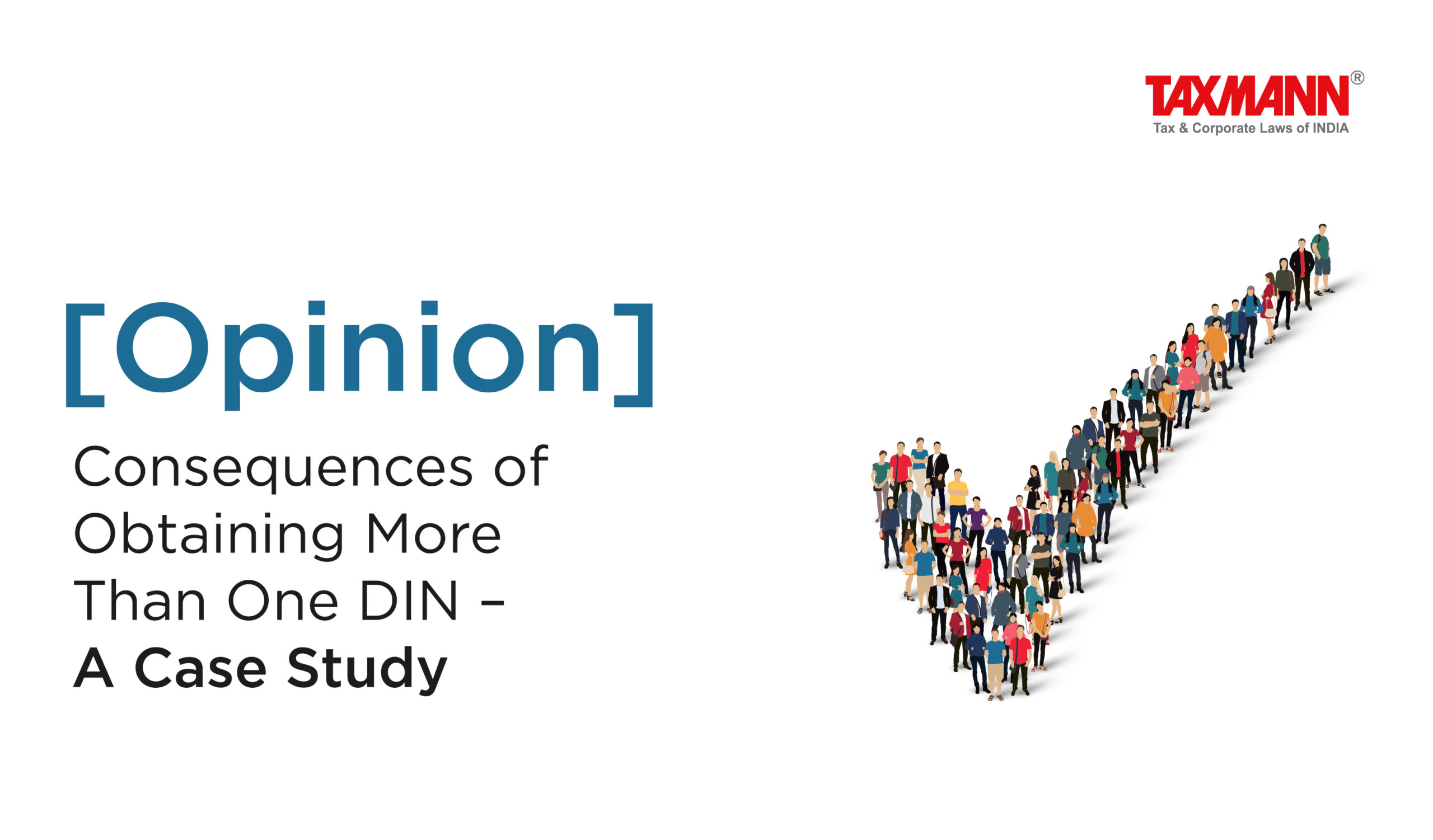[Opinion] Consequences of Obtaining More Than One DIN – A Case Study
- Blog|News|Company Law|
- 2 Min Read
- By Taxmann
- |
- Last Updated on 31 July, 2023

Prof R Balakrishnan – [2023] 152 taxmann.com 649 (Article)
Director Identification Number (DIN)
1. Director Identification Number (DIN) is a unique identification number, allotted by the Central Government to each aspiring individual who would like to be a director of any company. The DIN number is allotted by the Central Government and is valid for the lifetime of the director. As per the provisions of the Companies Act 2013, an individual should have a valid DIN number for him/her to be appointed as a director in any company. Obviously, it means, any individual who is already a director would be having the DIN number.
2. Framework of the Companies Act 2013 on DIN
The framework of the Companies Act 2013 provides certain restrictions and prohibitions to obtain more than one DIN number As per the provisions of the Companies Act 2013, no person who already has a DIN number shall apply for another DIN number which means, one DIN number for each of the director.
Further, the Companies Act 2013 read with relevant rules also provides for the surrender of a DIN number and the DIN number can be surrendered by making an application to the Central Government in the specified e-form on the ground that the individual concerned was never been appointed as a director in any company and also the DIN number has never been used for filing any document with any authority.
3. Relevant provisions relating to DIN under the Companies Act 2013
Section 155 of the Companies Act 2013 provides that no individual, who has already been allotted a Director Identification Number (DIN) under section 154 shall apply for, Obtain or process another Director Identification Number.
4. Penal provision for default/violation
Section 159 of the Companies Act 2013 provides that if any individual or director of a company makes any default in complying with any of the provisions of Section 152, section 155 and Section 156 such individual or director of the company shall be liable to a penalty which may extend to fifty thousand rupees and where the default is a continuing one, with a further penalty which may extend to five hundred rupees for each day after the first during which such default continues.
Click Here To Read The Full Article
Disclaimer: The content/information published on the website is only for general information of the user and shall not be construed as legal advice. While the Taxmann has exercised reasonable efforts to ensure the veracity of information/content published, Taxmann shall be under no liability in any manner whatsoever for incorrect information, if any.

Taxmann Publications has a dedicated in-house Research & Editorial Team. This team consists of a team of Chartered Accountants, Company Secretaries, and Lawyers. This team works under the guidance and supervision of editor-in-chief Mr Rakesh Bhargava.
The Research and Editorial Team is responsible for developing reliable and accurate content for the readers. The team follows the six-sigma approach to achieve the benchmark of zero error in its publications and research platforms. The team ensures that the following publication guidelines are thoroughly followed while developing the content:
- The statutory material is obtained only from the authorized and reliable sources
- All the latest developments in the judicial and legislative fields are covered
- Prepare the analytical write-ups on current, controversial, and important issues to help the readers to understand the concept and its implications
- Every content published by Taxmann is complete, accurate and lucid
- All evidence-based statements are supported with proper reference to Section, Circular No., Notification No. or citations
- The golden rules of grammar, style and consistency are thoroughly followed
- Font and size that’s easy to read and remain consistent across all imprint and digital publications are applied



 CA | CS | CMA
CA | CS | CMA
